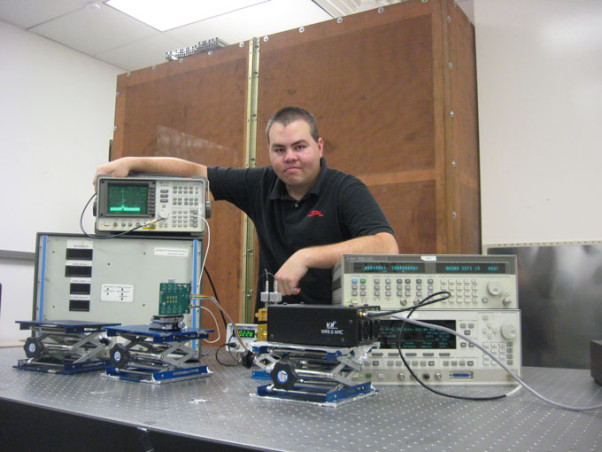
Abstract
JPL and UCLA have recently explored several types of data-link based on the concept of signal backscattering and reflection. A reflection based link illuminates a mobile device who modules the reflection back to the base-station. The reflection-based link concept evolved out of JPL and UCLA’s work on reflect arrays for planetary science instruments as a means to achieve beam-steering and forming. In this talk we will look at the basic operation of reflective links as well as many of the technical obstacles related to the nature of reflection (in band blocking and ambient blocking). Several proof of concept demonstrations at mm-wave and microwave frequencies will be presented.
Biography
Adrian Tang has over 13 years of commercial CMOS circuit design experience and is now a strategic technology researcher in the sub-millimeter wave advanced technology group at NASA's Jet Propulsion Laboratory in Pasadena, California. He is currently leading several JPL and NASA projects aimed at infusing CMOS technology into space instrumentation and spacecraft systems for both Earth science and Planetary exploration. His research is primarily focused on development of wide-band ADCs, wide-band spectrometer processor SoCs, self-calibrating mm-wave, and navigation processor SoCs for exploration of outer planets (like Jupiter and Saturn).